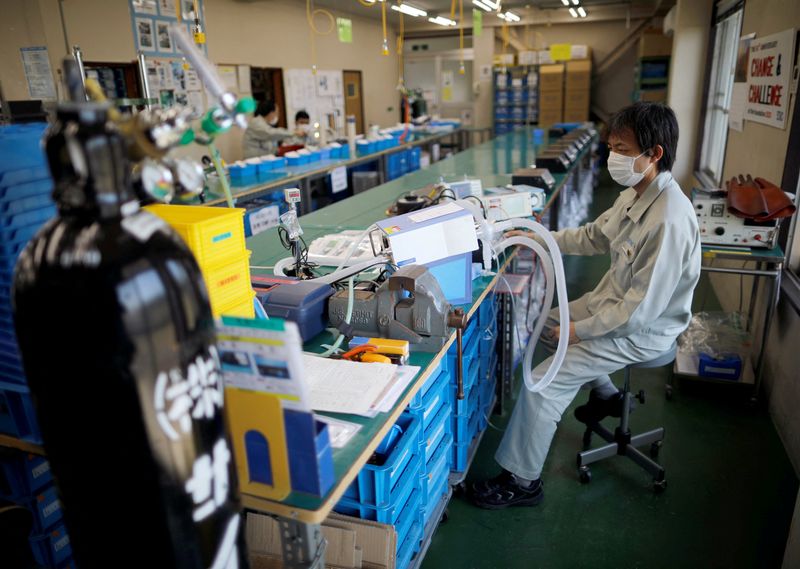TOKYO - Japan's factory activity stayed unchanged in June, a private-sector survey showed on Monday, amid lacklustre demand and as companies struggled with rising costs due to the weak yen.
The final au Jibun Bank Japan manufacturing purchasing managers' index (PMI) was at 50.0 on the break-even line that separates growth from contraction, after a brief improvement to 50.4 in May.
The final June index had slight downgrade from 50.1 reported in the flash PMI.
Among key subindexes, output improved to a 13-month high with firms clearing back-orders and building inventory, but new orders stayed in contraction given sluggish demand, especially in auto and semiconductor sectors, the survey showed.
Orders from abroad extended their declines to two years and four months. Some companies reported deteriorating demand in Asian markets like China and Thailand, as well as in Europe and North America, according to the survey.
Nevertheless, firms' future output expectations rose to a six-month high thanks to a better medium-term outlook for car and chip sectors, the survey showed. Data on Friday showed Japan's industrial output in April-June likely surpassed that of the previous quarter, driven by auto production.
"However, there were some concerning aspects in the latest figures, with companies grappling with heightened cost pressures as yen depreciation exacerbated the price of imported materials," said Pollyanna De Lima at S&P Global (NYSE:SPGI) Market Intelligence, which compiled the survey.
The input price index was at highest in more than a year with respondents citing higher costs for a wide range of items including copper, crude oil, electronic component, labour and utility.
"Manufacturers raised their selling prices at the strongest rate in over a year as a result, an unfavourable consequence given that both domestic and external demand remain weak," De Lima said.

The yen has hit its lowest levels since 1986. Its impact on import prices and consumption has complicated the Bank of Japan's plan to raise interest rates again after ending negative rates at the landmark March meting.
A separate Reuters survey showed last month that Japanese manufacturers were losing confidence for their business environment and capital expenditure due to increased costs.